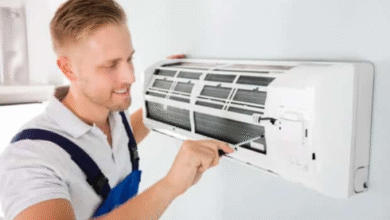Clean Water, Better Kitchens: Why Filtration Matters More Than You Think

Step into the back of any busy restaurant and you’ll notice one thing right away: water is everywhere. From boiling pasta to washing vegetables, filling ice machines, or brewing that morning rush of coffee, water touches nearly every part of food preparation. Yet, it’s one of those hidden details diners rarely think about. Truth is, the quality of that water can make or break not just the taste of the food, but also the performance of the equipment that keeps the whole kitchen humming.
I’ve seen chefs get passionate about knives, stoves, and storage systems, but mention filtration, and you usually get a shrug. Still, behind the scenes, the humble commercial kitchen water filtration system is quietly doing the heavy lifting, making sure every drop is clean, safe, and free from the stuff that could clog pipes or ruin flavors.
The Taste Factor Nobody Talks About
We all know the disappointment of sipping a glass of water that tastes vaguely metallic or worse, like chlorine. Now imagine that same water being used for your iced tea or soup base. Suddenly, it’s not so subtle anymore. Good filtration strips out impurities, chemicals, and sediments that sneak into municipal supplies. The result? Food and beverages taste like they were meant to. Coffee becomes smoother, tea loses its bitterness, and even simple pasta gets that extra clean note you can’t quite explain but immediately notice.
What’s fascinating is how much of a difference it makes for consistency. For restaurants, consistency is everything. You want customers to come back knowing their latte or cocktail will taste just as good as the last time. Filtration keeps that promise intact.
Equipment Longevity (Because Replacing a Dishwasher Isn’t Cheap)
Beyond taste, there’s a very practical reason kitchens invest in filtration: protecting equipment. Hard water, loaded with minerals, is a silent destroyer. It leaves limescale on dishwashers, steam ovens, and ice machines, slowly cutting into efficiency and lifespan. The repairs aren’t small, and the downtime hurts more.
With proper commercial kitchen water filtration, you’re essentially extending the life of every water-fed appliance in the building. Think of it as insurance that pays off daily. Instead of scraping off mineral deposits or calling for constant maintenance, the machines just keep running smoothly. And in a world where margins are already razor thin, every avoided repair bill counts.
Health, Safety, and a Touch of Peace of Mind
It’s not just about flavor or equipment—there’s also a health element. Filtration reduces contaminants, bacteria, and other microscopic troublemakers that could slip through untreated water. Kitchens already juggle enough responsibilities with food safety, so having filtered water takes one big worry off the list.
And let’s not forget the staff. Employees drinking filtered water from the tap instead of buying bottles? That’s a small but real morale boost, plus a sustainable step in the right direction. Customers might never see it, but they’ll taste it, and your team will feel it.
The Maintenance Side of the Story
Here’s where many owners stumble. They invest in a system, install it, and then… forget it. Filters clog, cartridges wear out, and suddenly you’re back to square one with funky-tasting ice cubes. Regular upkeep isn’t glamorous, but it’s crucial.
That’s why I always suggest finding a trusted commercial kitchen water filter service near me instead of trying to DIY everything. The pros know how to handle routine maintenance, catch issues before they spiral, and keep things compliant with local regulations. Plus, outsourcing this job frees up your team to focus on cooking, not fiddling with filter cartridges in the middle of a dinner rush.
Choosing the Right Fit
Not all kitchens are the same, so neither are their filtration needs. A small café with one espresso machine won’t require the same setup as a hotel with multiple bars, ice machines, and banquet halls. Some systems focus purely on sediment, while others specialize in removing chlorine, chloramine, or scaling minerals.
The smartest move is to assess your water quality first. Municipal supplies vary wildly, and what works for one city block might not cut it for another. From there, you can tailor the filtration to your menu, equipment, and volume. It’s like finding the right pair of shoes—you want something that feels made for your exact stride.
Why It’s Not Just a “Nice-to-Have”
If you’re running a food business, filtration isn’t a luxury. It’s part of the foundation, just like refrigeration or ventilation. You wouldn’t dream of skipping those, right? Water deserves the same attention.
Imagine investing in premium coffee beans, only to brew them with unfiltered water that dulls the flavor. Or shelling out for a high-end dishwasher that breaks down early because of mineral buildup. Those aren’t abstract scenarios—they’re everyday headaches for kitchens that overlook water quality.
The Bigger Picture: Sustainability and Smart Operations
Filtration also plays a role in sustainability. Fewer bottled waters for staff and guests means less plastic waste. Efficient machines that don’t need constant repairs? That’s fewer parts going to landfills. And when water tastes clean right from the source, customers notice.
In an industry where word-of-mouth is gold, even the smallest details matter. People might not rave about your filtration system on Yelp, but they’ll definitely remember how crisp the water tasted, or how smooth their coffee was. Those little details add up to repeat business.
Wrapping It Up
So, the next time you walk into your kitchen and turn on the tap, think about what’s really happening behind the scenes. Water is more than an ingredient—it’s the quiet backbone of every recipe, every drink, every clean plate.
Investing in filtration isn’t about being fancy. It’s about protecting your equipment, serving food and drinks at their best, and giving both staff and customers a healthier experience. Whether you’re running a bustling restaurant or a cozy café, water deserves a spot at the top of your priority list.
Because at the end of the day, clean water isn’t just good business—it’s good sense.




